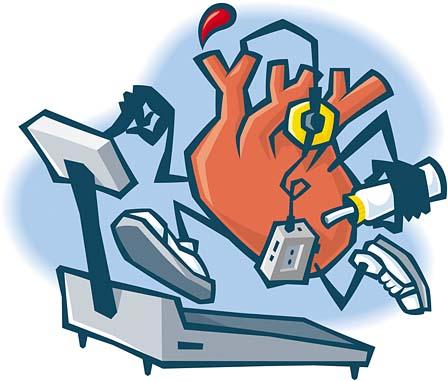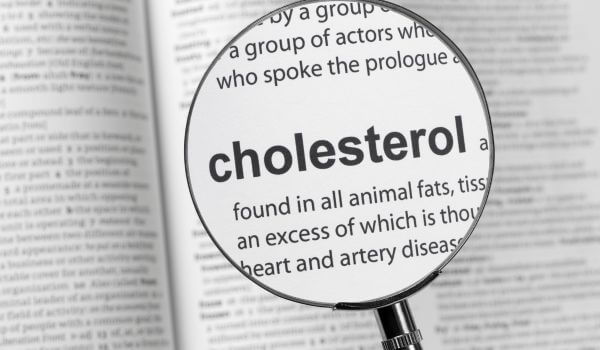Cholesterol is a waxy substance found in the blood and every cell in the body. It is an essential part of normal metabolism, but too much or too much of the wrong kind can lead to trouble.
The body produces cholesterol in two ways. The liver produces most of it. The other source is the fat in foods.
When there is too much cholesterol in the blood, it can lead to plaque buildup inside the arteries. High cholesterol is a significant risk factor for many life-threatening diseases, including heart disease, heart attack, and stroke. Most people have already heard that high cholesterol negatively impacts health. Let’s take a look at five common misconceptions about cholesterol.
Misconception #1: All cholesterol is bad cholesterol
Not all cholesterol is the same. There are two main sources of cholesterol: serum cholesterol which is produced in the liver; and dietary cholesterol, which comes from the foods we eat. Bodies need cholesterol which helps with digestion, hormones production, and generating vitamin D.
There are two main types of cholesterol in the body: low-density lipoprotein (LDL), which is known as “bad cholesterol,” and high-density lipoprotein (HDL), known as “good cholesterol”. When the balance id LDL and HDL is lost and LDL levels get too high, it can lead to plaque buildup on the inner walls of arteries, and eventually heart disease, heart attack, or stroke.
Higher levels of HDL are a good thing. It transports dietary fats to the liver, where they are disposed of. The ideal targets in a healthy adult are for less than 200 mg/dL (milligrams per deciliter) in total, and LDL cholesterol levels should be under 100 mg/dL, while HDL should be above 60 mg/dL.
Misconception #2: Only adults are in danger of having high cholesterol
High cholesterol is not always caused by lifestyle factors. It can be hereditary too. Familial hypercholesterolemia is a genetic disorder in which the body is unable to remove LDL cholesterol from the blood. If either parent has the condition, there is a 50 percent chance that a child will inherit it. Children with familial hypercholesterolemia are also at a higher risk of developing cardiovascular disease.
Even young children without genetic predispositions to high cholesterol can be at risk if they are encouraged to be making healthy lifestyle choices. Studies show that the process of plaque accumulating in arteries can start during a person’s young years. This makes it important to encourage physical activity and a healthy diet and to discourage unhealthy habits such as smoking.
Misconception #3: If you exercise and eat healthily, you don’t need to have your cholesterol levels checked
Unfortunately, we don’t always have full control over our cholesterol levels. There is a hereditary factor when it comes to high cholesterol — some people naturally produce more cholesterol than others even when they diet and exercise better..
Eating a healthy diet and engaging in regular physical activity is important for everyone, but so is having the cholesterol levels checked regularly. Starting from age 20, cholesterol and other risk factors need to be checked every four to six years even if everything is normal. Id there are any sign of elevated cholesterol, it may be necessary to check at least annually until the levels come under control.
Misconception #4: Thin people don’t have to worry about having high cholesterol
It’s true that obesity or being overweight raises the risk of having high cholesterol, but that doesn’t mean thin people can’t have high cholesterol as well. We already know that genetics play a role in cholesterol levels, so thin people are not necessarily off the hook.
In fact, people with slim body types may be less conscious of whether the foods they eat are loaded with trans and saturated fats, and this can take a toll on their health. These unhealthy foods may not cause them to become overweight, but they can still lead to high cholesterol levels.
Misconception #5: If you take medication for high cholesterol, you don’t need to worry about making lifestyle changes
People who have been measured with high cholesterol levels may need to go on medication. It’s important to keep in mind that just because the medication reduces cholesterol, it does not mean that the lifestyle that lead to the buildup of cholesterol can continue without consequences.
Some of the simple changes that anyone with high cholesterol levels should take are:
- Eat a heart-healthy diet, which includes fruits, vegetables, legumes, nuts, seeds, whole grains, lean protein, and omega-3-rich fish.
- Cut down on saturated fats.
- Exercise for at least 45 minutes three to four times a week.
- Quit smoking.
- Limit alcohol intake to not more than two drinks per day for men and one drink per day for women.
In conclusion, if you have high cholesterol levels, it’s important to do everything in power to get them down. Cut out processed, refined, and artificial foods from your diet, as well as trans and saturated fats. Focus on fresh, whole foods instead. If lifestyle changes are not working to lower cholesterol levels, you may need to go on cholesterol-reducing medication. Some of the most frequently prescribed cholesterol medications are Lipitor, Crestor, and Liptruzet.

















